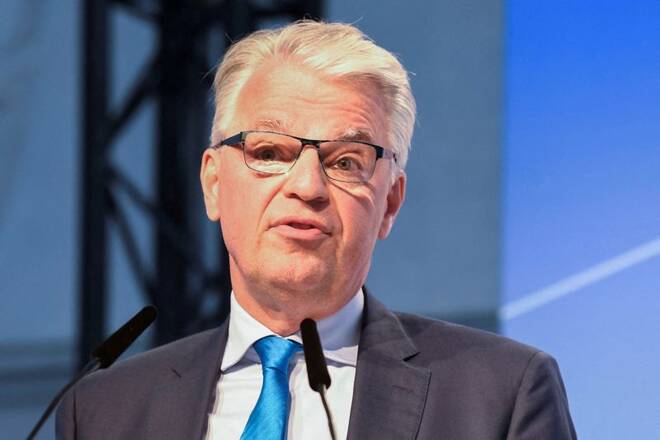Advertisement
Advertisement
Aurubis CEO says has stopped buying copper from Russia
By:
SANTIAGO (Reuters) - Aurubis AG, Europe's largest copper smelter and producer, no longer buys the red metal from Russia after it let supply contracts lapse, its CEO told Reuters on Monday.
SANTIAGO (Reuters) – Aurubis AG, Europe’s largest copper smelter and producer, no longer buys the red metal from Russia after it let supply contracts lapse, its CEO told Reuters on Monday.
Russia’s invasion of Ukraine last year fueled a range of boycotts, sanctions and other measures against copper and other metals from the country.
Aurubis, which is not a miner, but refines and recycles copper into wire and other components, had contracts for Russian supply of the red metal that it did not renew when they recently ended, Aurubis CEO Roland Harings said on the sidelines of the World Copper Conference in Santiago, the copper industry’s largest gathering since 2019.
“We are not buying Russian copper anymore. It’s completely out of our system,” he said. Harings had asked the London Metal Exchange last October to impose a ban on Russian metal due to risk of warehouses filling up. Copper supply contracts typically end on a calendar-year basis.
Russia in 2021 – the year before the invasion – supplied Germany-based Aurubis and the entire European Union with nearly 292,000 tonnes of an 801,000 tonnes of imported copper, according to data from Trade Data Monitor.
Despite that amount, the copper market has pivoted to new sources of the red metal and Aurubis does not have supply concerns, Harings said.
“We have been able without real problems to replace the Russian copper units that we were buying with other sources,” Harings said.
Elsewhere, Harings said the broader copper market was generally healthy and noted that Aurubis is reporting strong demand, especially for cable and other products for the green energy transition.
“There are significant demands for many, many years to come for copper,” Harings said.
(Reporting by Ernest Scheyder; Editing by Josie Kao)
About the Author
Reuterscontributor
Reuters, the news and media division of Thomson Reuters, is the world’s largest international multimedia news provider reaching more than one billion people every day. Reuters provides trusted business, financial, national, and international news to professionals via Thomson Reuters desktops, the world's media organizations, and directly to consumers at Reuters.com and via Reuters TV. Learn more about Thomson Reuters products:
Advertisement
